With over 31 billion views on TikTok alone, “Turkey teeth” has become a ubiquitous trend. However, it doesn’t just refer to the practice of getting your teeth done in Turkey.
“Turkey teeth” has become synonymous with botched dental treatment in Turkey. It’s what’s used to label teeth that are too white, too bulky, too boxy, or too opaque, all having the same length – in short, they look fake and are badly done.
But unfortunately enough, Turkey teeth have been used as an umbrella term for “all” the dental work that’s being done in Turkey. While there definitely have been many horror stories (“Turkey Teeth Gone Wrong”) in the media, there are thousands whose positive testimonials have also fuelled Turkey’s dental boom.
So, who should you listen to? In this guide, we’ll break down the conversations around the #Turkeyteeth, so you can make a more informed decision.
What Are Turkey Teeth?
“Turkey teeth” is a term used to describe the disingenuous and predatory dental practices in Turkey. More often than not, it refers to “shark-like” teeth that result from excessive shaving of one’s natural teeth.
The term didn’t always have a negative connotation. Following the dental boom in Turkey, more and more people would leave the country with a completely different smile.
That practice itself and the distinctive appearance of that smile (bright, shiny, even) is what became known as the Turkey teeth.
However, things took a turn when Katie Price posted a rather graphic video of her teeth, reduced to tiny stubs. She was in Turkey for her second round of dental crowns, just 2-3 years after she had her first one (it’s not normal).
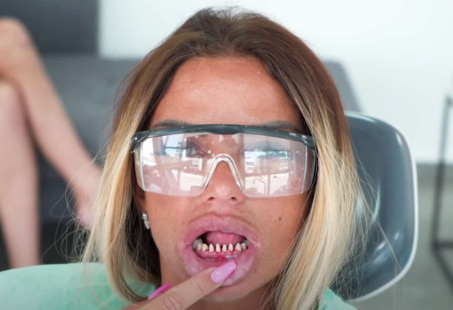
That made headlines, particularly the fact that it happened in Turkey. Adding fuel to the fire were Jack Fincham’s shark-like stubs that had also made headlines the previous month (that had also happened in Turkey, but Jack actually loved his new teeth) and BBC’s documentary.
In the latter, the BBC’s documentary presenter contacted 150 Turkish dental clinics and 50 UK clinics, asking for a treatment plan.
70 out of 120 Turkish clinics recommended veneers or crowns (they’re different), while none of the 34 UK clinics that got back recommended these invasive treatments.
The British Dental Association also warned of getting teeth done abroad.
They’d conducted a survey which showed 86% of the patients who’d travelled abroad developed complications (mainly when dental crowns were involved).
Some other people also came forward with their stories in which they experienced serious complications after getting their teeth done in Turkey. For instance, there were reports of the following occurrences:
While some were happy with the cosmetic appearance of their teeth, there were others who thought that those teeth resembled that of a horse. And that’s what Turkey teeth became.
Are Turkey Teeth Bad?
While the term Turkey teeth is used to refer to badly done dental work, it’s definitely not an accurate representation of everyone’s experience.
There are thousands and thousands of positive testimonials on independent review sites from medical tourists in Turkey. Word-of-mouth marketing is also popular in this industry because it has worked for many.
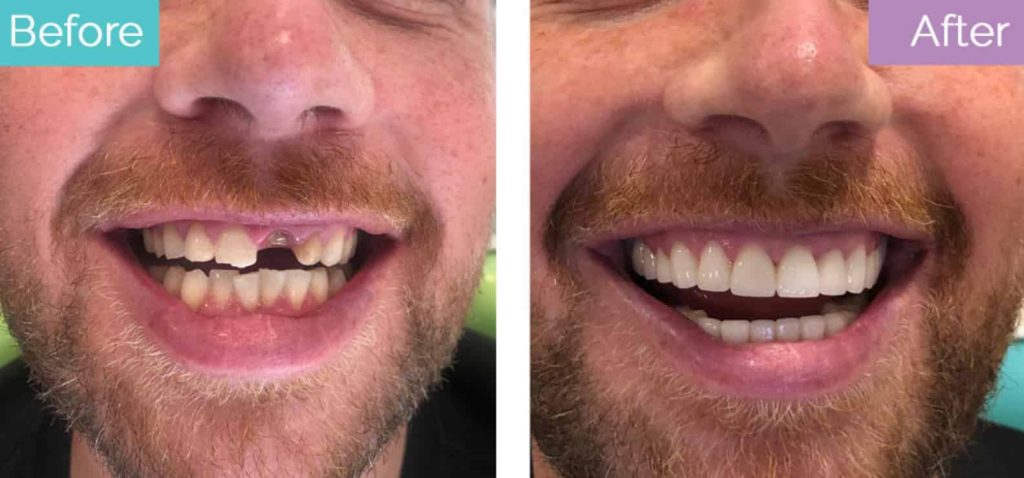
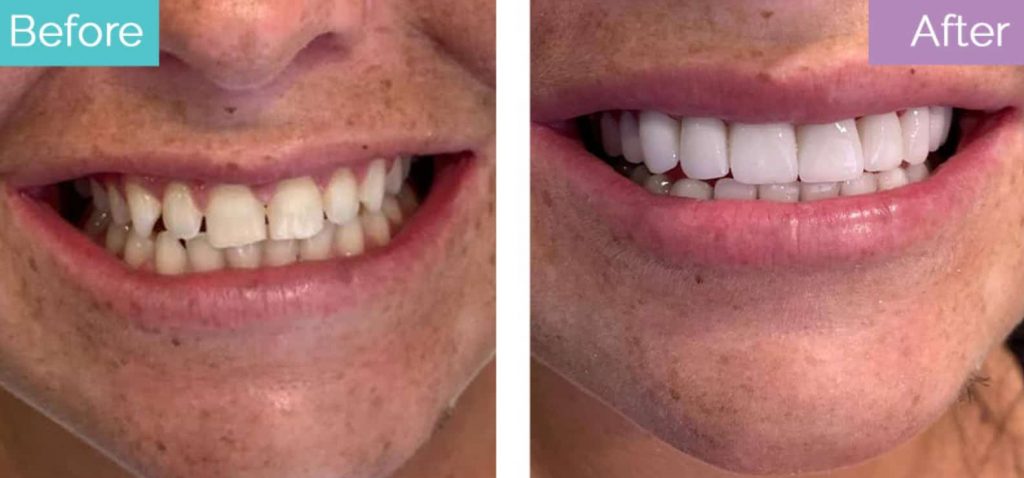
And that’s because Turkey has many excellent dentists. Contrary to popular media, there’s a regulatory body for dentistry in Turkey – the Turkish Dental Association. Among its many aims is “to contribute to and comply with the international dental world.”
The truly qualified and experienced dentists are also well-studied. The dental education lasts for 5 years, and they then have a speciality exam known as Diş hekimliği Uzmanlık Sınavı or DUS. Depending on the specialisation, the study can continue for 3-4 more years.
So, when you see Turkey teeth in Istanbul, Antalya, Ankara or any other city, there are likely shoddy clinics and bad dentists at the backend. And mind you, this problem isn’t just prevalent in Turkey.
In the UK, NHS Digital reports 225,570 written complaints were made in 2021-2022. And 120,064 of those complaints were for GP and dental. The most common cause of complaint there was the clinical treatment itself.
And there are horror stories of NHS dentists as well. In January 2023, the Mirror reported the case of a nurse whose wrong tooth was extracted by an NHS dentist. She went there because it was cheaper, but following the incident, she had to revert to private care.
The dental cosmetic work in the UK isn’t infallible, either. Simon Cowell’s teeth were widely ridiculed for looking fake. But there was no mention of any UK or US dentist botching his teeth.

So, it’s not that Turkish teeth are bad. Dental crowns or veneers are a cosmetic procedure, and delivering on the aesthetics is something that experienced dentists can do for you.
Are Turkey Teeth Safe?
Registered Turkish dentists working in Ministry of Health-regulated clinics have been providing safe dental treatments to many locals and foreigners.
However, whether you’re in Turkey or anywhere else in the world, it’s important for you to do your research. The NHS even has a list of warning signs that you should look out for. These include:
- A hard sell (aggressive sales approach)
- Lack of information
- Feeling pressured to make a decision quickly
- No prior discussion of the potential complications of the procedure
- No availability of aftercare services
The urge for immediate gratification (in this case, a new smile at a low cost in just a few days) should not overpower the long-term implications of your decision.
Take your time to find a reputable clinic with an experienced dentist for your new teeth in Turkey.
When there is high demand for a particular product or service, a black market often emerges (for instance, Botox black market is a problem in the UK).
So, you need to be careful and knowledgeable about the treatments yourself as well.
You’d be surprised to know that not many people knew the difference between crowns and veneers before (and even still) the entire Turkey teeth debate.
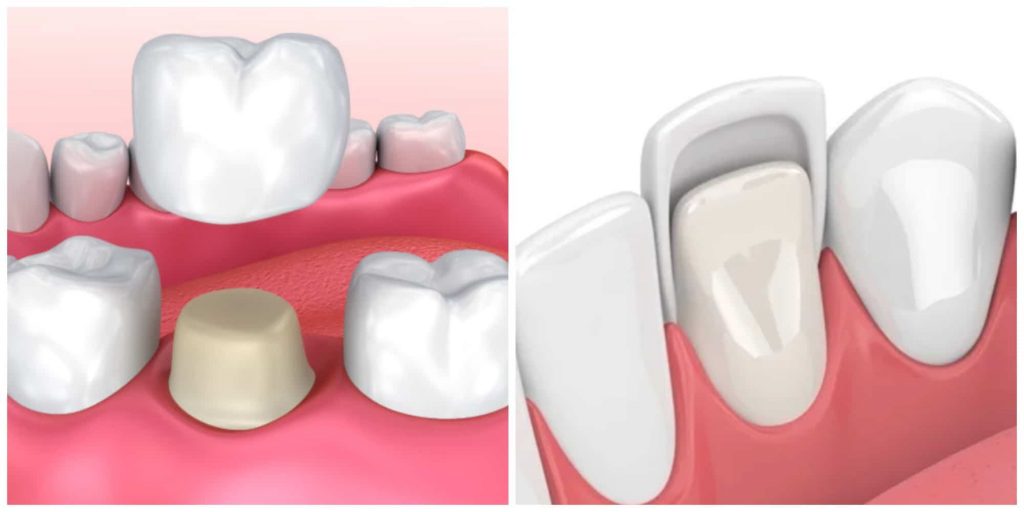
Even Love Island’s Jack Fincham didn’t know that he was getting crowns. Long after things are done, people realise that those procedures are actually irreversible (because teeth cannot grow back).
You can even get “Turkey teeth” through treatments that don’t require any tooth shaving. Composite bonding is one example of it.
Keep in mind that Turkey’s been experiencing a dental boom for quite a few years now.
And the high volume of dental tourists has added to the experience of the dentists there. That’s made it even more possible to get safe dental treatments.
What Is The Warning About Turkey Teeth?
Many dentists in the UK and dental organisations like the British Dental Association (BDA) have issued warnings regarding some of the subpar dental work in Turkey.
The UK Foreign Office (FCO) also issued a warning for medical treatments in Turkey. It urged the Brits to do their “own research.”
And further advised them to look at HealthTürkiye’s website for providers that are approved by the Turkish Ministry of Health.
On this, the General Dental Council (GDC) has also issued guidance to those going abroad for dental work.
They have also highlighted the importance of being aware of “what to expect and what risks are involved.”
Why Does Everyone Want Turkey Teeth?
Turkey teeth have made achieving a Hollywood Smile easier and more affordable, which is why everyone wants them.
The want of good-looking teeth isn’t anything new. According to a 2013 study published in The Journal of Indian Prosthodontic Society, if you’re satisfied with the aesthetics of your teeth, it can have a positive impact on your “social and psychological behaviour.”
No one likes having bad teeth, and given the choice, they would like to change that. With teeth in Turkey, many people find that they have this choice because they can actually afford to get new teeth.
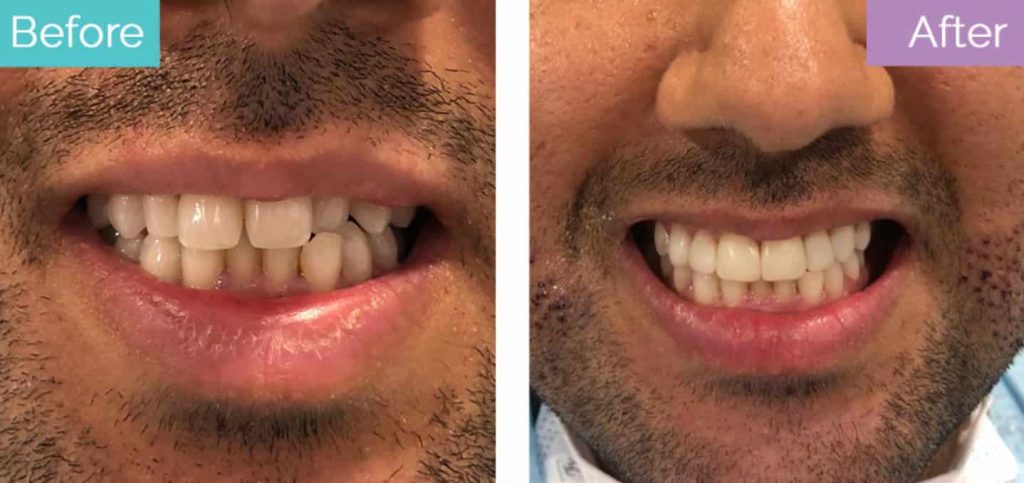
Turkey is almost 3-5 times cheaper than the UK, US, or Europe when it comes to dental work. It’s not because of poor regulations or low quality. The country’s cost of living is lower and the exchange rate further sweetens the deal.
But aside from the Turkey teeth prices, it’s the easier availability and accessibility of procedures in Turkey that attracts so many dental tourists.
This also comes at a time when the NHS is experiencing an exodus of dentists. People are experiencing difficulties registering with dentists, and the wait times are also very long.
By getting their teeth in Turkey instead, many people are able to bypass all this.
Are Turkey Teeth Worth It?
Again, there are many people who would tell you that their Turkey teeth experience was well worth it.
Longevita alone has many dental reviews that can attest to that. We work with cosmetic dentistry specialists who’ve been practising for decades. They are also, of course, members of the Turkish Dental Association.
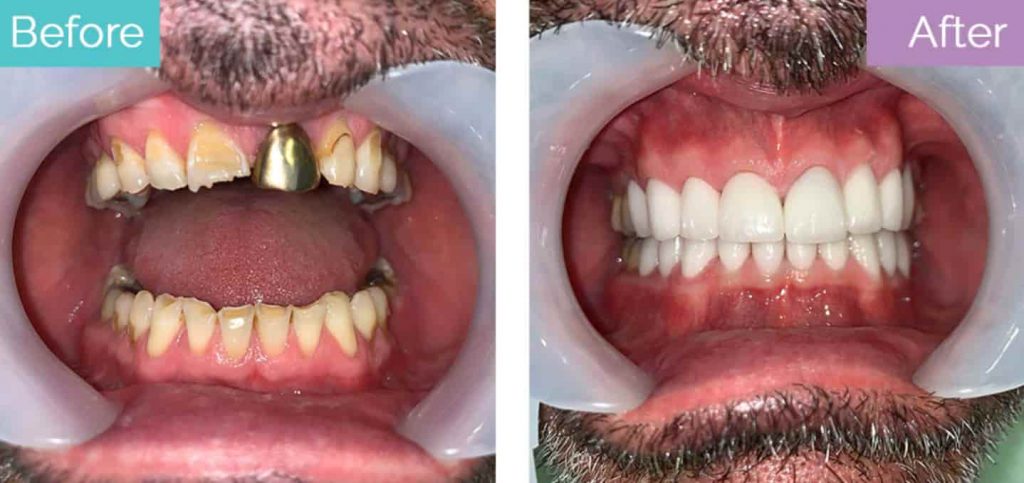
By doing your research, you can try and make your entire experience worth it as well. While it’s true that you can get cheap dental deals in Turkey, don’t always fall for the cheapest ones.
Those cheaper price quotes might be a result of some failings in the clinic’s operation (an inexperienced dentist, an unregistered clinic, poor quality materials, etc.)
How To Avoid Turkey Teeth Fail?
There are some steps you can take to lower your Turkey teeth risks.
- Ask questions – Doesn’t matter how blunt they seem (ask about qualifications, experience, speciality, etc.). Think of it as short-term “pain” for long-term gain.
- Check English fluency – If there’s a strong language barrier, you and your dentist might not be on the same page, which can be very risky.
- Ask about aftercare – Make sure they offer aftercare. Longevita even has a GDC-registered dentist in London to help patients.
- Learn the risks – Whether you’re getting dental bonding, crowns, veneers, teeth implants in Turkey or even teeth whitening in Turkey, know the risks beforehand.
- Check reviews – Read the good and the bad to come to a final decision.
- Talk to a previous patient – Try and talk to a previous patient of the clinic to learn about their experience.
The GDC also advises that in your initial consultation, your dentist should ask for your full medical history, and they should show an interest in your general health.
It’s not just about the country where you’re getting your teeth done, it comes down to the experience and qualifications of your dentist. And you should do your best to find a good one.
Conclusion
While the term “Turkey teeth” has been decimated by the media, it’s important to remember there are two sides to every story.
There are some people who had terrible experiences in Turkey, but then there are hundreds of thousands coming to Turkey every year.
And dental treatments in Turkey wouldn’t have become this popular if it was all botched work. Many, many people have had positive experiences, and they were also able to save quite a lot through this. For instance, Turkey teeth implants are about £500, but the same can cost up to £3,000 or even more in the UK.
Still, cost shouldn’t be your only deciding factor. Before all that, your health is far more important. And to ensure your safety, do your research to find a registered, experienced and qualified dentist.
Reviewed and approved by Dr Izbel Aksit
FAQs
What is the Turkey teeth trend?
Turkey teeth trend is where more and more people are going to Turkey to get a Hollywood smile. However, many people go thinking that they’re getting veneers instead of crowns.
Will UK dentists work on Turkey teeth fixing?
Fearing litigation for any damage caused, UK dentists might not be too willing to fix a botched dental treatment. However, there are still dentists who are able to do repair work when needed.
Do Turkey teeth look fake?
“Turkey teeth” is used as a generalised term for the fake-looking teeth some people get in Turkey. However, done by an experienced dentist, you can get very natural-looking Turkey teeth, even indistinguishable from your natural teeth.
How long do Turkey teeth last?
The longevity of your Turkey teeth will depend on the type of treatment you undergo. Most people mean crowns when alluding to Turkey teeth. They normally last for 5-15 years (no matter where you get them).
